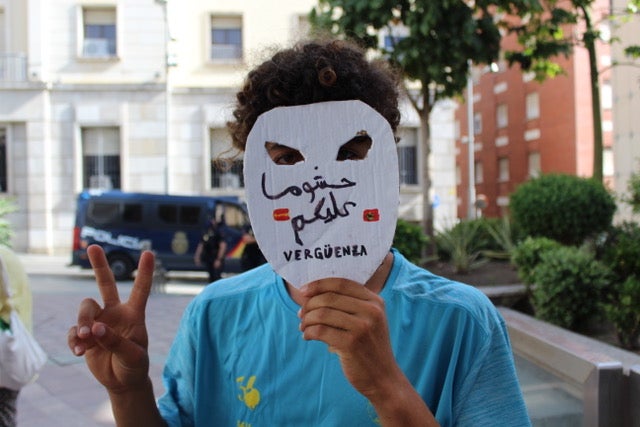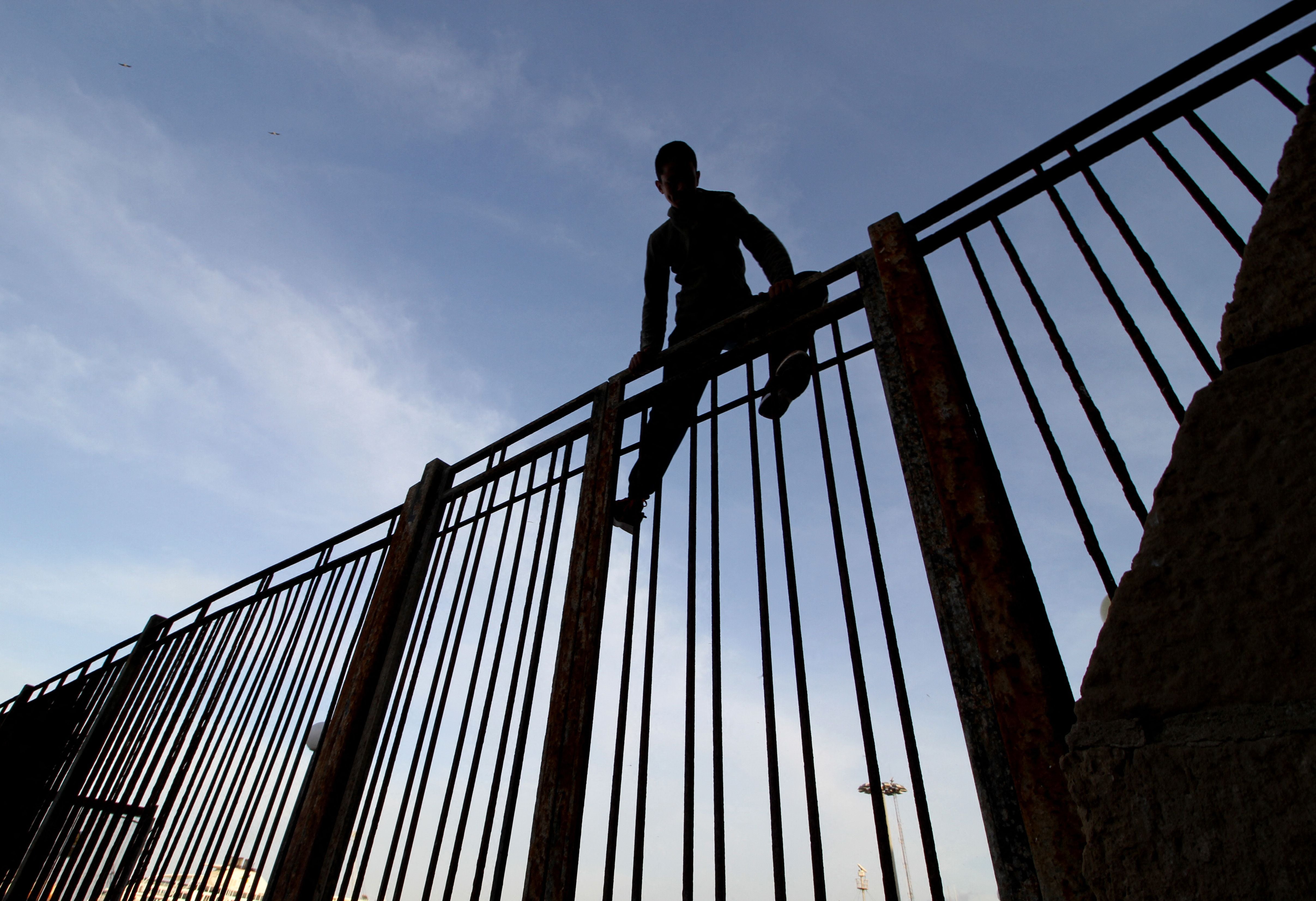‘They are not at risk’: Spain stopped from deporting child migrants to Morocco
Amid fury from human rights groups, Spain is trying to overturn a court decision blocking it from deporting child migrants back to Morocco. Thomas Graham reports from Melilla

The Spanish government has been given until Thursday to show it is not breaking the law by repatriating children to Morocco, in a case which has outraged international human rights groups.
More than 700 minors remain in the care of the local government after 10,000 migrants swam into Ceuta, the Spanish North African enclave, over three days in May.
Last week, the Spanish Interior Ministry made a deal with Morocco to start sending the minors back, repatriating 15 youngsters a day.
The Spanish Interior Minister, Fernando Grande-Marlaska, said the returns were legal and taking place under a 2007 agreement between Spain and Morocco for assisted returns once children’s cases had been considered.
Morocco has given “assurances” that the minors’ rights will be respected, he added.
“We are returning the ones that are returnable,” Grande-Marlaska said in an interview with Spanish public radio RNE. “They are not at risk.”
But the move sparked fury among NGOs and parts of the Madrid government itself, with Spain being accused of breaking international law and violating the rights of the children.
On Monday, Yolanda Díaz, vice-president and leader of the Podemos party, spoke with President Pedro Sánchez, asking him to intervene and put a stop to the expulsions.
Later that day, the administrative court in Ceuta ordered a 72 hour freeze on the returns until it could be verified how the process was being carried out. Forty-five minors had already been returned.
The deportations have been criticised as undermining the UN Convention on the Rights of the Child.
UNICEF and Save the Children released a statement saying the returns “do not comply with regulations, violate [the minors’] fundamental rights… and should be stopped immediately”.
By law, each minor’s case should be assessed individually to ensure deportation is in the child’s best interest. The Interior Ministry initially claimed that this procedure has been followed, but a spokesperson from Save the Children told El País it had not.
Over the last three months, Save the Children has conducted interviews with hundreds of the minors in Ceuta and found a quarter had experienced sexual or physical abuse in Morocco.
The Interior Ministry has defended the legality of its actions, stating that only minors who wanted to be returned have been sent back, and that they are “assisted returns”, not “expulsions”. It also denied that other parts of the government had been in the dark about the plan.
Since the deportations began, a small number of the minors have fled government centres.
They join several hundred other minors that have lived on the street for the last three months, suspecting that they would be sent home if they went to the centres. They spend their days trying to stow away on boats to the mainland.
Including adults, roughly 2,500 of the migrants that came in May remain in Ceuta. Along with Melilla, Spain’s other North African enclave, Ceuta is one of just two land borders between Europe and Africa.
The arrival of the migrants in May was widely seen in Spain as retaliation by the Moroccan government after Madrid allowed a Western Saharan pro-independence leader to enter Spain for medical treatment.
Morocco has denied its border guards facilitated the passage of the migrants.
The deal to return the Moroccan minors was initially seen as proof of an improvement in diplomatic relations between the two countries.

The head of the Ceuta government, Juan Jesus Vivas, acknowledged that the 2007 agreement does not set out specific rules but states that Spain and Morocco have to agree on how to proceed with returns.
Regardless of whether an individual written assessment has been made of each child, he said, for the past three months the minors who have been returned have been accompanied by qualified professionals and no child classified by them as vulnerable has been sent back to Morocco.
But in a letter to Spanish Prime Minister Pedro Sanchez published Tuesday, 28 Spanish and international rights groups insisted the returns are illegal because they are done in groups, without prior warning and without a hearing or the provision of legal counsel.
A Spanish court has suspended the returns until Thursday, giving the government 72 hours to show it is not breaking the law.






Join our commenting forum
Join thought-provoking conversations, follow other Independent readers and see their replies
Comments